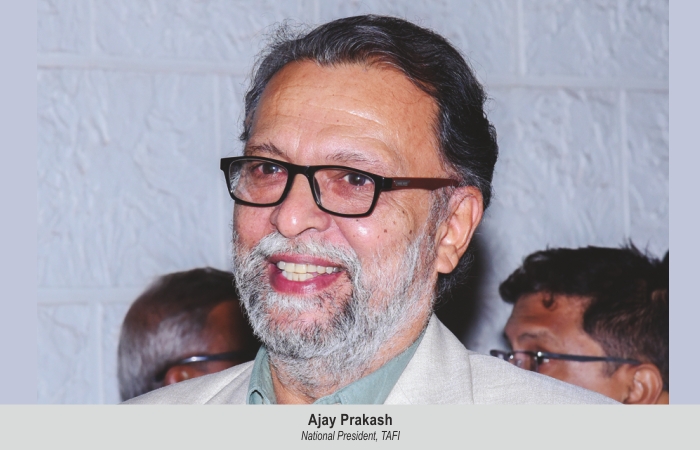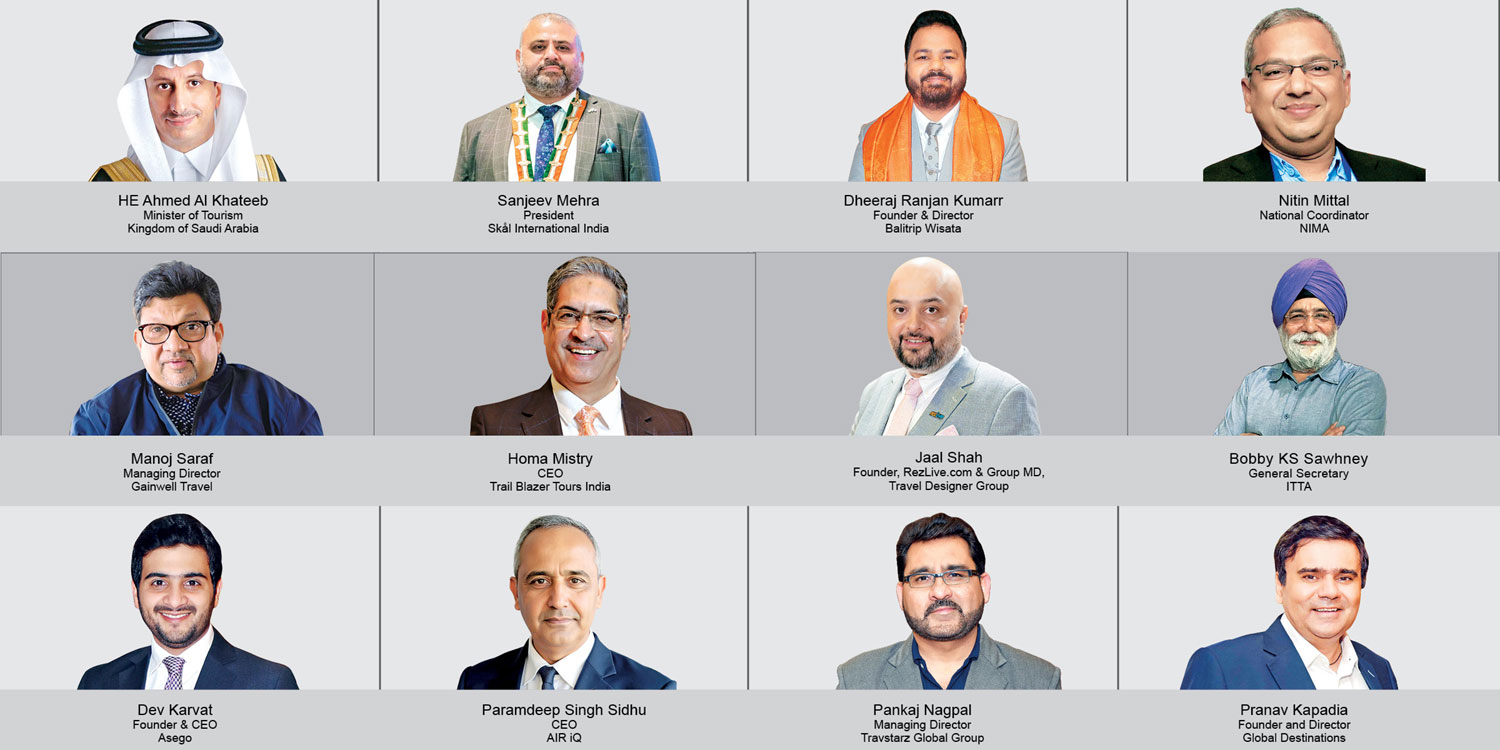Ajay Prakash, National President, Travel Agents Federation Of India (TAFI), is cautiously optimistic about how this year will pan out for travel agents. He urges them to give a serious thought to adopting technology for their business, and also requests the government to ease visa application process to increase inbound traffic.
Hazel Jain
All geo-political events affect travel movement; the pre-requisite for tourism is peace, says Ajay Prakash, National President, Travel Agents Federation of India (TAFI). “In the absence of peace, tourism suffers. An industry of this size needs to come together and make itself heard on how the affairs of the world are conducted. We have learnt to expect the unexpected. Travel, even in the best of times, is an uncertain proposition. When large scale events like a war take place, they disrupt travel. It is, therefore, important to have systems in place to ensure sustenance,” he says, adding that, “Going forward, we can all use technology to better prepare ourselves against such cataclysmic events.”
He says things have been challenging for TAFI as an organisation as well. “Even in terms of domestic travel, we saw high airfares, which we thought would affect travel, but surprisingly it didn’t. The flights are all full, so perhaps the Indian traveller is more resilient than we give him credit for,” he adds.
TAFI had recently organised a session on ChatGPT conducted by an expert for its members. He explained how the tool works with a live demo showcasing how agents can use it to enhance their product offerings and making operations more efficient. “If agents know the right queries for ChatGPT, it can throw up a workable itinerary that can be edited by the agent, depending on what their clients require. “Upskilling in various fields is important today. It opens up the mind to various possibilities,” he adds.
Ease visa to increase inbound
Last year, many countries sought to capitalise on the growing outbound market from India and eased a lot of the visa problems that Indian travellers were facing. “The more people can move freely, the better it is for the industry. I wish the Indian government would take a leaf out of their books and look at creating a visa-on-arrival for as many nationalities as possible. Even waiving it for some, if we want to attract inbound tourists. Inbound tourism to India has been slow in recovery; we are nowhere near our pre-COVID levels. Outbound has recovered well, but for inbound we are at best at 40 per cent. There is a need for us to look at how we can attract more travellers into India. We need to get up and grab our fair share of inbound traffic,” Prakash opines.
He says that India needs to make the visa application process as painless as possible. “I recently received a request from a Polish client to process her visa for India, after she finally gave up trying to do it by herself. The website kept hanging and troubled with other technical issues, she claimed,” Prakash says.
Need for capacity building
The airline capacity is not back to what it used to be, and this keeps fares high, Prakash says. This is reflected in CAPA’s mid-year outlook. It states that around 200 aircraft of domestic carriers are expected to be grounded by the end of current financial year (31 March 2024). More than 90 of them will be that of the country’s largest carrier IndiGo. “We also need to look at dispersal of tourist traffic instead of concentrating it in major destinations, including India. The onus to do that lies on us agents to ensure that the traffic is well dispersed,” he says. He shares that the TAFI Convention is likely to be organised in the second quarter of this year. Many destinations have shown interest in hosting the convention, he informs.
 TravTalk India Online Magazine
TravTalk India Online Magazine





